One year ago, I spent two months in the Big Apple attending the New York Film Academy‘s eight-week class in filmmaking, together with a very diverse group of people. All in all, there were 16 students in my class, very few of them Americans. An international atmosphere dominates the whole school; many of our teachers were Brits, Germans, Italians, etc. The clip above is a flashy little introduction to the New York Film Academy, which is located right next to Battery Park in downtown Manhattan. I rented a small but very nice apartment in Chelsea, right next to the High Line.
The eight-week filmmaking workshop is a very hands-on introduction to the craft, with classes in directing, cinematography, editing, producing, directing actors, screenwriting and sound. The idea is not to produce a filmmaker who’s learned every trick there is to learn in just two months… but someone who’s, ideally, ready to learn more and start making movies. In my case, I’d been a critic for years, not only writing for my own site but also for a newspaper. I was handed an opportunity through my job to do this workshop and get first-hand experience from actual filmmaking. Would I want to change my career? Here’s what I learned.
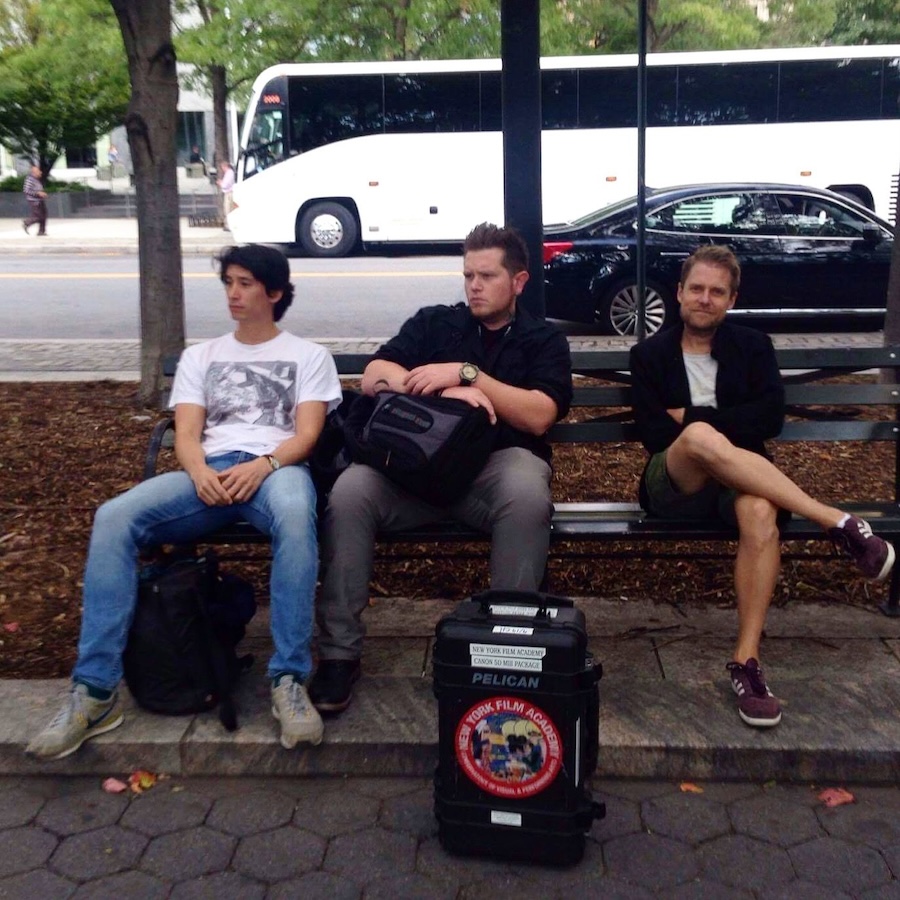
IT’S NOT FOR THE LAZY
If I had to choose one lesson from my time at the New York Film Academy, this is the one. Filmmaking is damn hard work and nothing gets done if you’re not committed. When I see an awful movie I know how much work lies behind, and that realization is almost painful. We had eight short weeks at the academy and we were supposed to make five short movies; before each project we learned something new that we were supposed to illustrate in different ways. That meant long days at school: lectures and practical exercises. Filming was essentially supposed to be done in our spare time.
At the same time, we were strictly advised to immediately start planning for the last and most ambitious of our little films, a five-minute short, because we would inevitably run out of time. The teachers knew what they were talking about; some even emphasized how the school curriculum worked against us. That was true; we needed more free time to work on our projects, but state laws apparently made it mandatory to spend a certain time in class.
I basically gave up life outside of school during these eight weeks. I got up early, went to school and came home around 8PM every night. Weekends were often spent working on my projects. I even developed a nasty rash because of stress (don’t ask)… but I still loved doing something completely different and challenging.
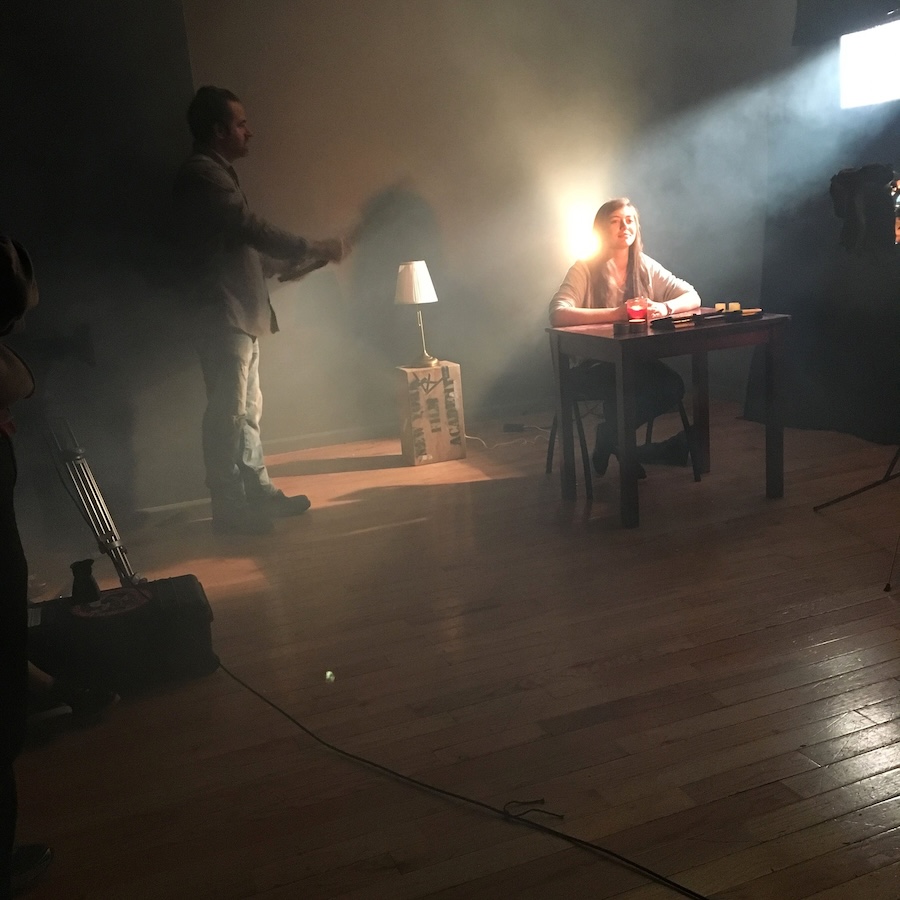
THE TECHNOLOGY OF FILMMAKING IS INFURIATING AND INTRIGUING
I’m not a handy person. What I feared the most about attending this workshop was the technical aspect of filmmaking, and it was certainly a mountain to climb. Our cinematography teacher introduced us to a classic 16mm camera before focusing on digital cameras. We learned how to load film; we learned the basic functions of the digital camera. I learned how to set up a tripod and attach the camera. We had lighting classes, which is where I truly learned the value of working with first-rate technicians. Of course, a skilled team would not be at our disposal; we had to make due with what we picked up in class and the equipment we borrowed from school. When we were shooting, it was up to us to haul the camera, tripod and lighting equipment all over town. I can still feel the weight of the tripod slung over my shoulder as I walked home from the subway.
When we weren’t shooting, we had to learn the technology of editing, using Avid, and how the sound equipment worked. It was overwhelming. There were things I never really got the hang of, but that was true of everyone – if you were better at something in your crew, you took care of that. Maybe one of the others would be better at something else, and help you with that. I never really fell in love with the technical aspects of filmmaking. I knew that I would be better as a director, not a great cinematographer or sound editor.
But trying all of that, forcing oneself to try all of it? A humbling, incredibly educational experience. I constantly felt clumsy, but I could also see the magic the technology conjured.
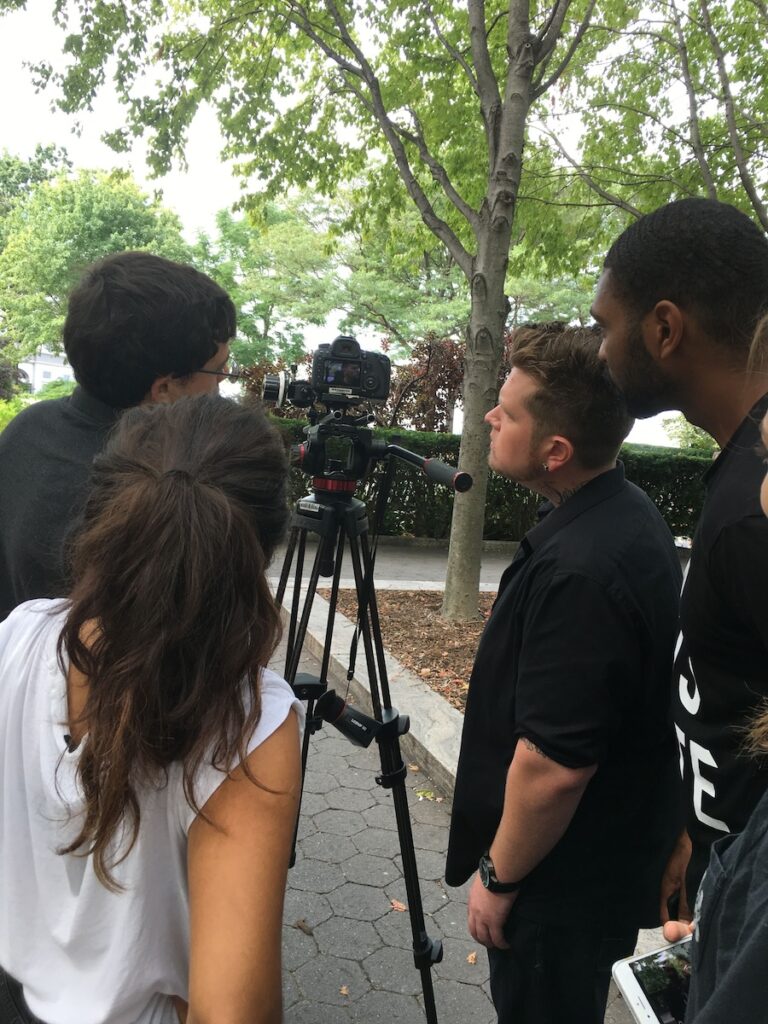
FILMMAKING IS A SOCIAL ENDEAVOR
You can learn all there is to know about using a camera and still fail at filmmaking if you don’t use your social skills and work together with your crew. Part of the challenge of the workshop was getting to know your classmates and learn to trust each other. We’re all humans, have different priorities and things were never as smooth as you’d wish – but you also realized how well things could work in an actual filmmaking situation where you work with pros who know what they’re doing and are getting paid to be there. Classes we took in directing, learning how to work with actors and communicating, were invaluable – and so was the producing class, which really taught us how to make practical things happen. You want to shoot in a specific store? You need to know how to make that happen, what the law says and how things are usually handled, insurance-wise, for instance. You need to make deals with people you’ll encounter.
Contacting actual actors to put in your movies was a nerve-wracking (but very enjoyable) part of it. They were patient and understanding with us filmmaking students, but since you weren’t paying them there was always a risk they might bail on you, for a paying gig… or because they just didn’t feel like showing up. I was very fortunate in dealing with the cast, though.
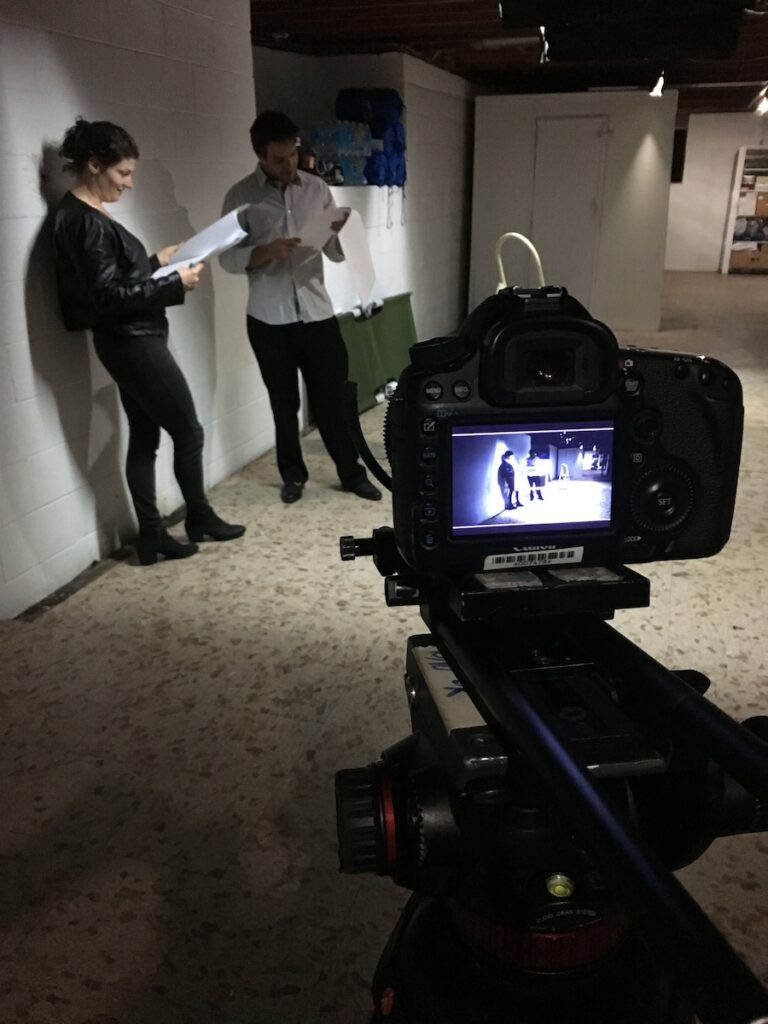
PLANNING IS EVERYTHING…
I mentioned earlier that if I ever were to become a filmmaker, directing is what I should do. One reason for that is a talent for planning. Our great directing teacher couldn’t emphasize enough how important it is to plan meticulously and well ahead of your project. I did my best, fully knowing that you can’t plan for everything. But creating storyboards and a shot list forced me to think about how to use the camera to achieve what I envisioned in my head; our producing teacher also showed us how to plan for all the practical stuff (budget? permits? catering? transportation?).
In spite of all this, I really struggled to follow my schedule during the two full days we had planned for my last movie. Other classmates simply couldn’t get organized enough during their days as director, resulting in chaotic shoots.
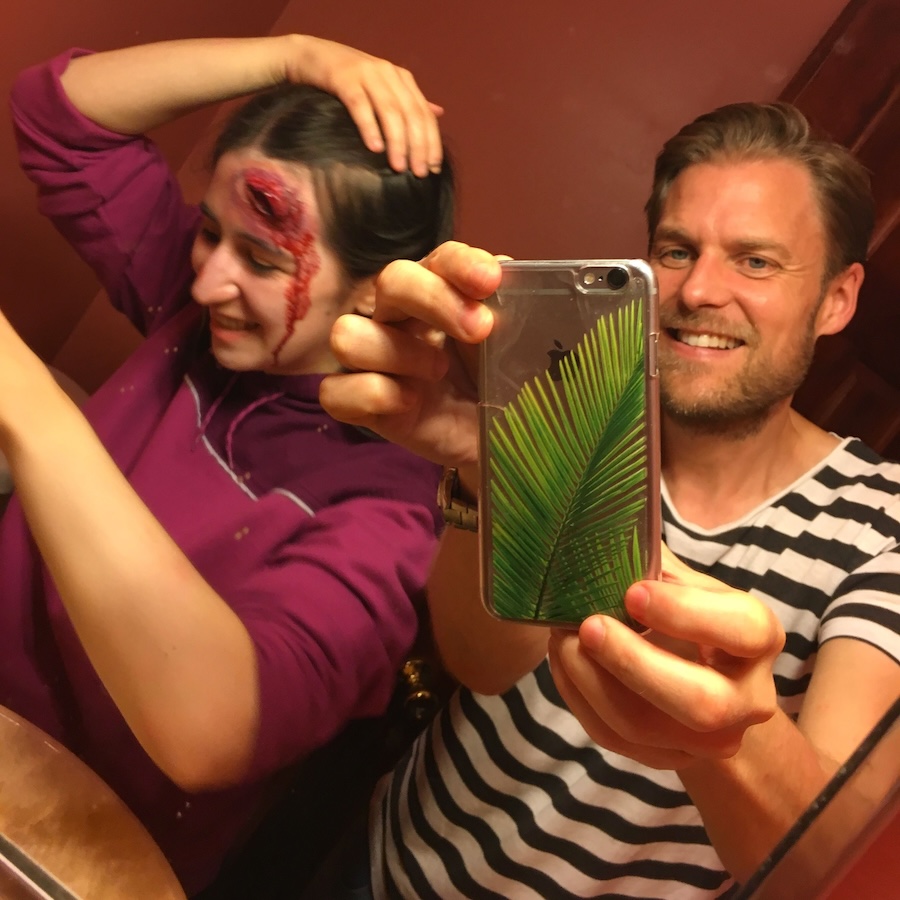
… BUT SO IS KNOWING YOUR ROLE
Collaborating was key during these eight weeks. If you could help in any way, you helped. We were all learning. But I often thought to myself during a shoot that in a genuinely professional atmosphere a movie is likely best made if everybody involved is good at what they’re hired to do. If something failed with the camera at school, you put down the boom and see if you could help. But on a real set, you need the gaffer, or cinematographer, or focus puller or whatever to do what they do. No one should be running around all over the place. There should be discipline (planning) and confidence (knowing your role).
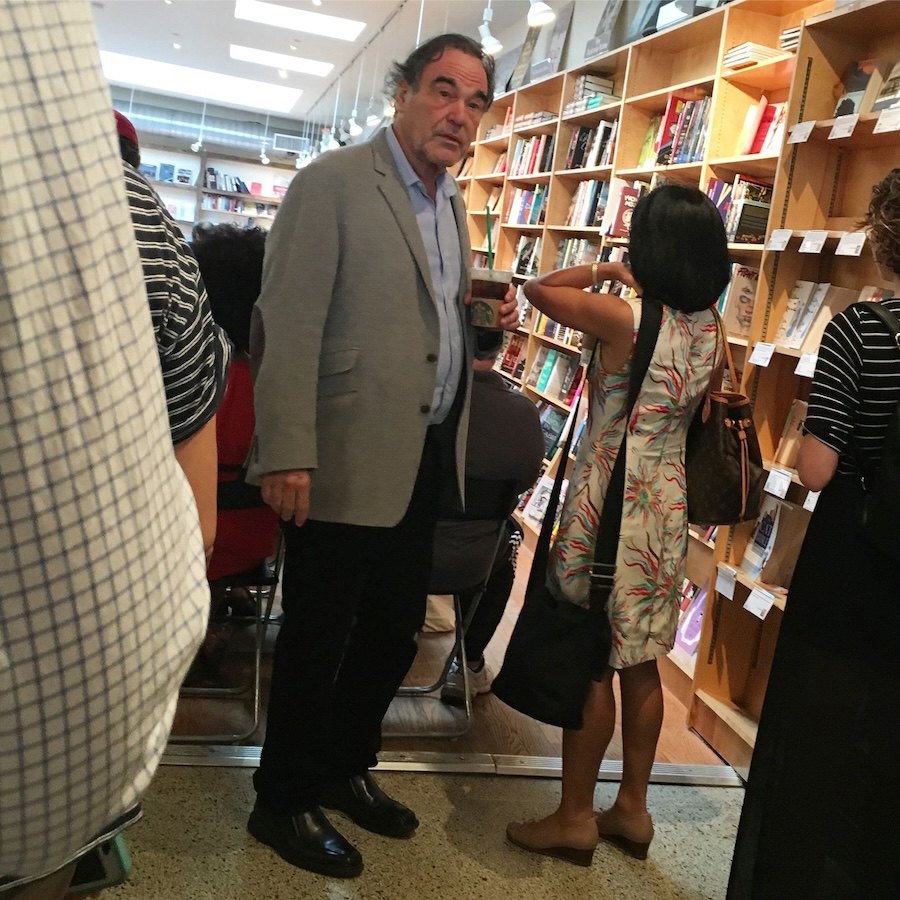
TAKE TIME OFF
A filmmaking student works under a punishing schedule (well, we did anyway), but you have to take a break, not only to rest but try to get new impressions. Your brain needs fuel. Some of my classmates spent nights out partying, but that’s not me. I tried to find times to watch a few movies; after all, it was interesting to look at them from a technical standpoint now that you were learning. I spent time with my brother and sister who visited on separate occasions, and also a former boyfriend who was in town for other reasons. I made sure to go running, at least around Chelsea Park right across from my apartment. I went to a book store in Brooklyn one day to see Oliver Stone get interviewed by Matt Zoller Seitz. I strolled around Central Park. I read, watched TV, had a few beers or wine at times, slept a lot…
Simple, but all very rewarding. I came up with the idea for one of the shorts simply by walking around Battery Park and running into a homeless man who put me in a tricky situation that I realized could be a film.
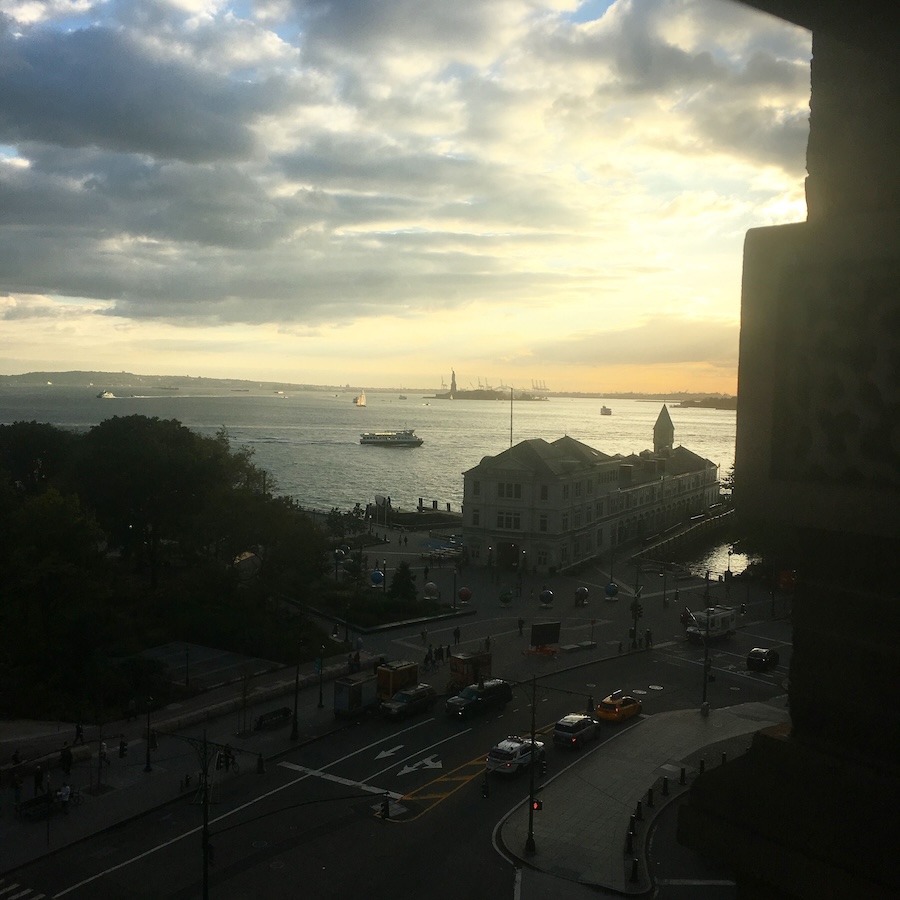
FILMMAKING IS NOT FOR ME – BUT THAT’S NOT BAD NEWS
So, would I want to change my career after those eight weeks? The simple answer is no. I’m not going to be a filmmaker. That was never my intention and I realized early on that going back to writing about movies will be just fine when this is all over. Not only does it put money in my wallet, but I love what I’m doing. The workshop gave me knowledge and taught me about the hard realities of filmmaking. It didn’t turn me into an insufferable bore who can only watch movies from a technical or academic standpoint. I’m still me when I watch a movie, I just know a little bit more about the work behind what’s on the screen. I notice the focus pulling a little more now, the shifting of lenses…
Obviously, the five short movies I made are still there for me to watch now and then. Their poor quality and many mistakes are embarrassing. But they’re also an irreplaceable source of memories.
